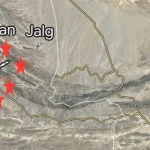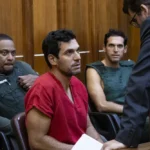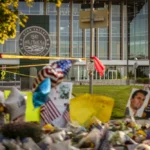KARACHI: Over the recent years, the Picassoesque political canvas of Pakistan underwent topsy-turvy transformations, particularly in the wake of Pakistan Tehreek-e-Insaf (PTI) captain Imran Khan’s dismissal as prime minister in April 2022 through a surefire no-trust motion meticulously choreographed by an accidentally united opposition and their backers.
Subsequently, Khan took his political battle to the streets with a so-called “foreign conspiracy narrative” and his party lawmakers stepped down en masse as members of assemblies — a move seen as a major blow to parliamentary politics.
Nevertheless, the PTI founder massively broadened his support base via street politics, which further harmed the country’s democratic system as political polarisation increased alarmingly due to Imran’s pet rhetoric of labelling his rivals as “traitors” and boasting himself as a true patriot.
While the return of PML-N supremo Nawaz Sharif to the country from self-imposed exile rekindled his party’s hope for a return to power, Imran’s incarceration and disqualification from contesting elections left his supporters disillusioned.
The future of Pakistan’s democracy is still unknown as the country prepares for general elections on February 8, as important political figures have expressed concerns about voting transparency and fairness.
In the last four general elections, voter turnout averaged just over 45%, which means that more than half the voters do not even partake in electing their new representatives.
Several reports by international organisations painted a bleak picture of the state of democracy and freedom of speech in the country with the Economist Intelligence Unit (EIU) 2022 report placing Pakistan among 34 “Hybrid Regimes” around the world.
The integrity of the last general elections was also tainted by the allegations of rigging and political engineering — a strategy employed to manipulate election outcomes in favour of any particular political party.
Political observers and experts believe that free and fair elections are more crucial for the country now than at any other time in history to bring political stability and deal with a plethora of challenges, including a weak economy, sky-high inflation, and mounting foreign debt, among others.






